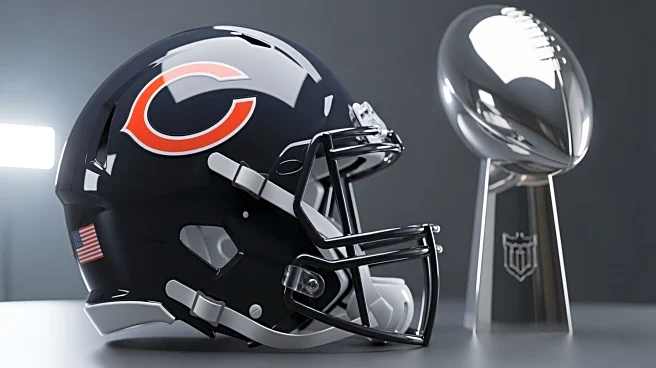What's Happening?
The Chicago Bears have acquired defensive end Joe Tryon-Shoyinka from the Cleveland Browns, along with a 2026 seventh-round pick, in exchange for a sixth-round pick in the same draft. This move comes shortly
after Bears defensive end Dayo Odeyingbo suffered a season-ending Achilles injury. Tryon-Shoyinka, who previously played for the Tampa Bay Buccaneers, has recorded 138 tackles, 15 sacks, and two forced fumbles in his career. His performance this season with the Browns includes nine tackles but no sacks in eight games. The acquisition aims to bolster the Bears' defensive lineup following Odeyingbo's injury.
Why It's Important?
The acquisition of Joe Tryon-Shoyinka is a strategic move by the Chicago Bears to address the gap left by Dayo Odeyingbo's injury. This decision highlights the importance of depth and adaptability in NFL team rosters, especially when facing unexpected player injuries. Tryon-Shoyinka's experience and previous performance with the Buccaneers could provide the Bears with a reliable defensive option. The trade also reflects the dynamic nature of NFL team management, where quick decisions are necessary to maintain competitiveness. This move could impact the Bears' defensive strategies and overall performance in the ongoing season.
What's Next?
The Bears will likely integrate Joe Tryon-Shoyinka into their defensive lineup, assessing his fit and impact on the team's performance. The coaching staff may adjust defensive strategies to leverage Tryon-Shoyinka's strengths and experience. The team will continue to monitor player health and performance, potentially making further roster adjustments as needed. Fans and analysts will be watching closely to see how Tryon-Shoyinka contributes to the Bears' defense and whether this trade improves their chances in upcoming games.
Beyond the Headlines
This trade underscores the challenges NFL teams face in managing player injuries and maintaining a competitive roster. The decision to acquire Tryon-Shoyinka reflects broader themes in sports management, such as the balance between immediate needs and long-term planning. The move also highlights the importance of scouting and evaluating player potential, as teams must make informed decisions to optimize their rosters. This scenario may lead to discussions about the role of trades in team strategy and the impact of player health on career trajectories.









